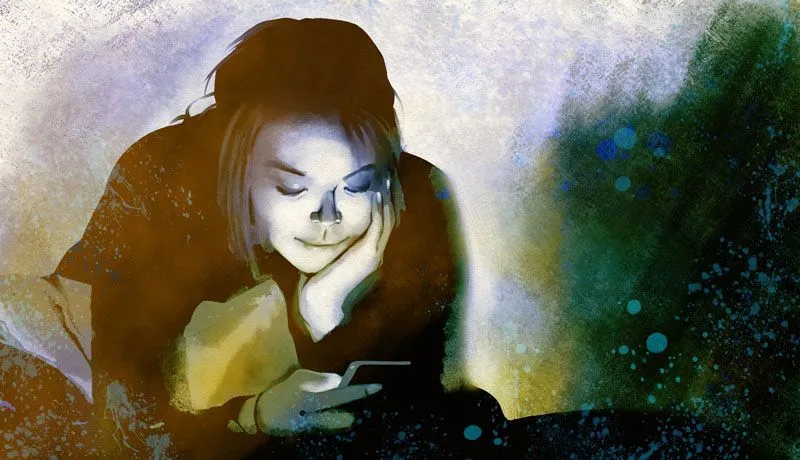3 minutes - Article
If you have to ask the question, you might already know the answer.
Social media is a great way to connect with people. It’s designed to be engaging and exciting, and it’s easy to get carried away. We spoke to Nimtaz Kanjii, the Director of Telus Corporate Citizenship and Communications, about the possible pitfalls of social media and how to make sure your feed stays fun and fresh and not embarrassing or offensive.
Think before you post
Social media can feel like it’s not even part of your real life, but it can have very real consequences if it gets out of control. “What you do online can really impact your reputation and your life,” says Nimtaz. “Once it’s out there, it can be hard to get back. You really have to think before you post. Things you say and do that you post online, even if you think it’s just in good fun, could come back to you in a bad way.”
A screenshot is worth a thousand words…
So let’s say you post something you regret. No big deal right? You just delete it. Well, turns out it’s not that simple. Nimtaz warns that anything you post or send in a message can be permanently accessed, even if you delete it or if the message disappears after a certain amount of time.
“Content that you share online, even content that you send to just one friend, can be easily copied, shared, and forwarded. It only takes a split second to take a screenshot. Something you only intend for a few people or one person could have a much larger audience than you wanted.”
Even if no one takes a screenshot, everything you send or post on social media is saved on a server. A server basically stores a bunch of information, and different apps will have different levels of security and rules about who can access the information saved on their servers.
Nimtaz explains, “When people are using Snapchat for example, they have the belief that they can send a message, send a photo, and that message or photo is going to disappear in three seconds. It might disappear from the person’s phone in seconds, but it’s still available and accessible on the app’s servers. People can access that information if they need to.”
Cleaning up your online presence
“It really sucks to have something online about yourself that you’re not proud of or that is embarrassing or just invades your privacy,” says Nimtaz. Luckily there’s lots of things you can do to prevent that situation. Think twice before you post or send a message, and check out what you’ve posted in the past to make sure it’s still something you want to have out there.
“Start by looking at your own social media profiles. Think about whether you’re proud of everything you have on there. If not, that’s ok. It’s never too late to make a change, and you can start today. You can delete anything you don’t like, and delete anything your friends have tagged you in that you don’t like.”
Ask them to take it down
“If somebody you know has posted about you and it’s not something you can easily take down, I would start by having a conversation with them,” says Nimtaz. “Let them know that it's hurtful or that you don’t like it, and ask for them to take it down. In a lot of cases, that actually does rectify the situation.” If that doesn’t work, a lot of apps have ways of hiding things other people have posted about you, blocking someone, or reporting things so that they’re taken down by the app.
Remember that social media is a lot of fun, but it can have some serious consequences. It’s becoming more common for employers, landlords, and schools to look at social media, so it’s important to be aware of your online impression. No post is worth losing out on an opportunity, so when in doubt, don’t send it out.
(photo illustration credit: BearPaw Communications, How to Stop Bullying)
